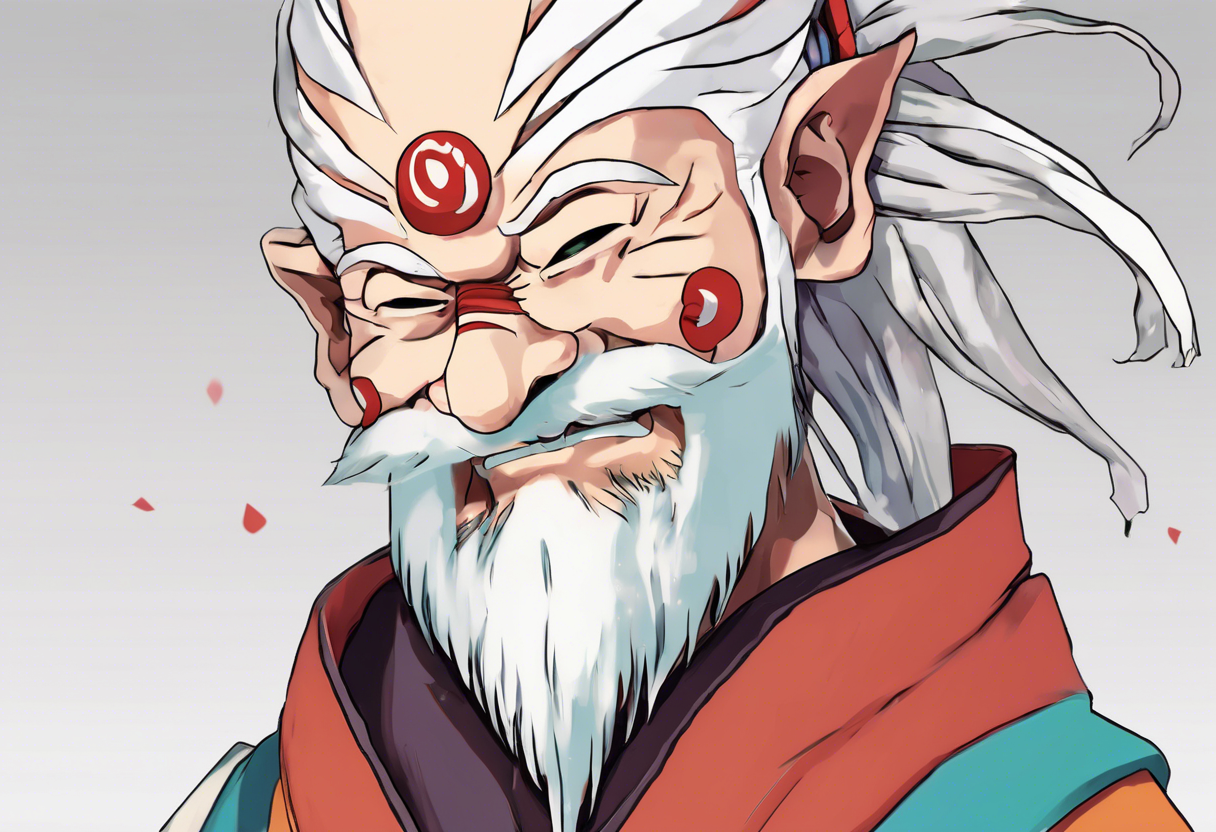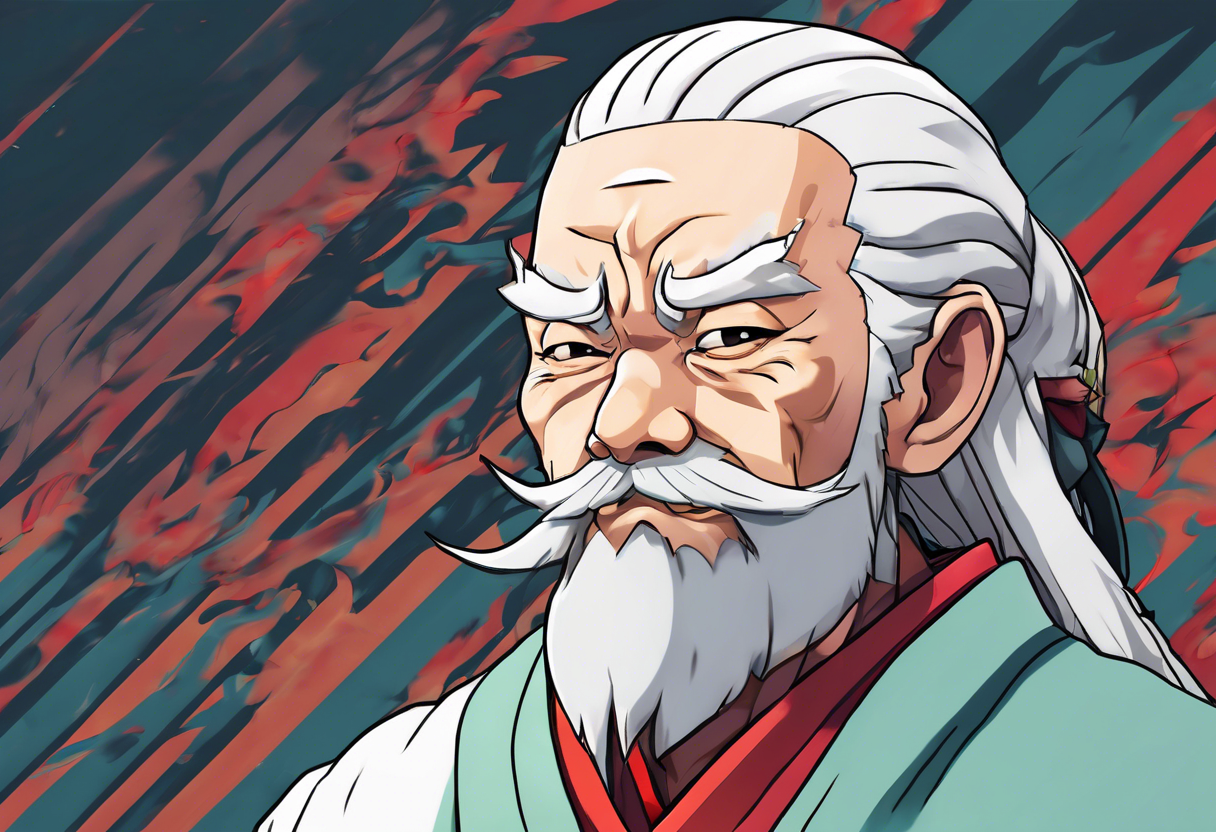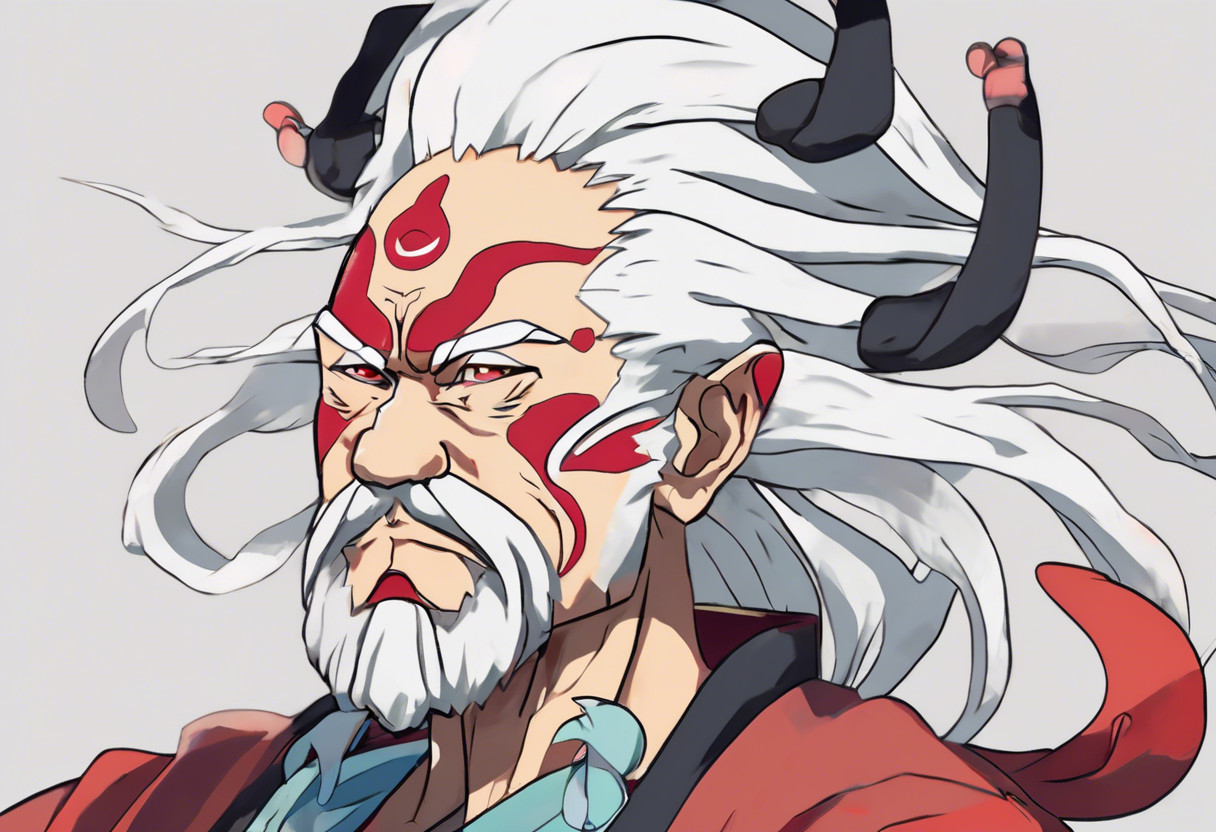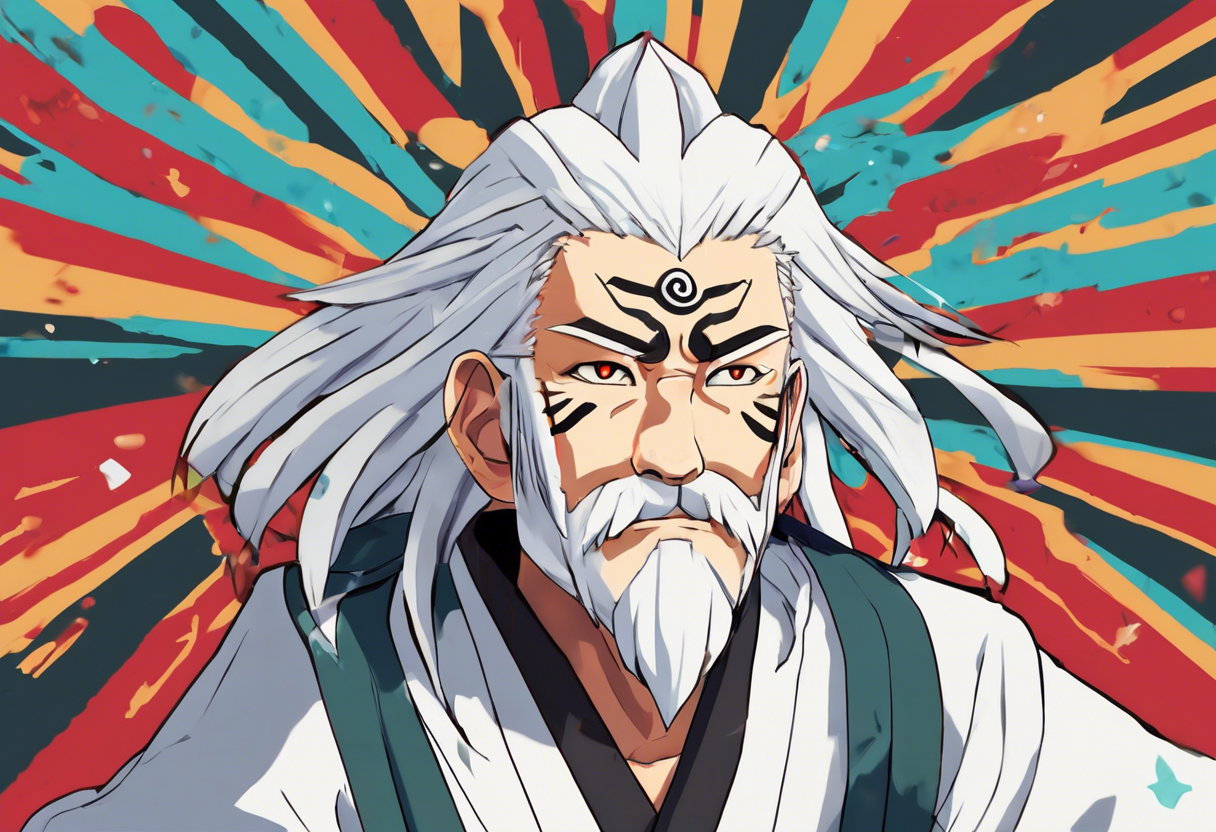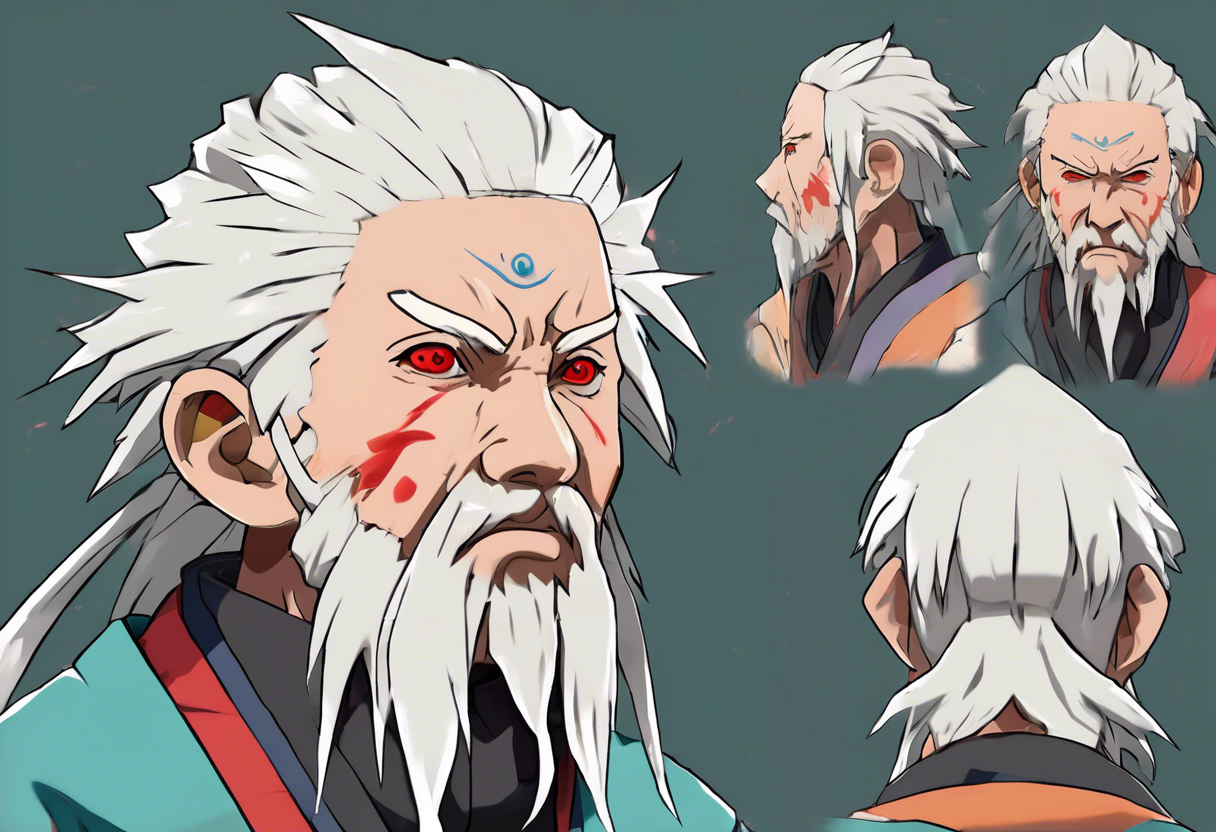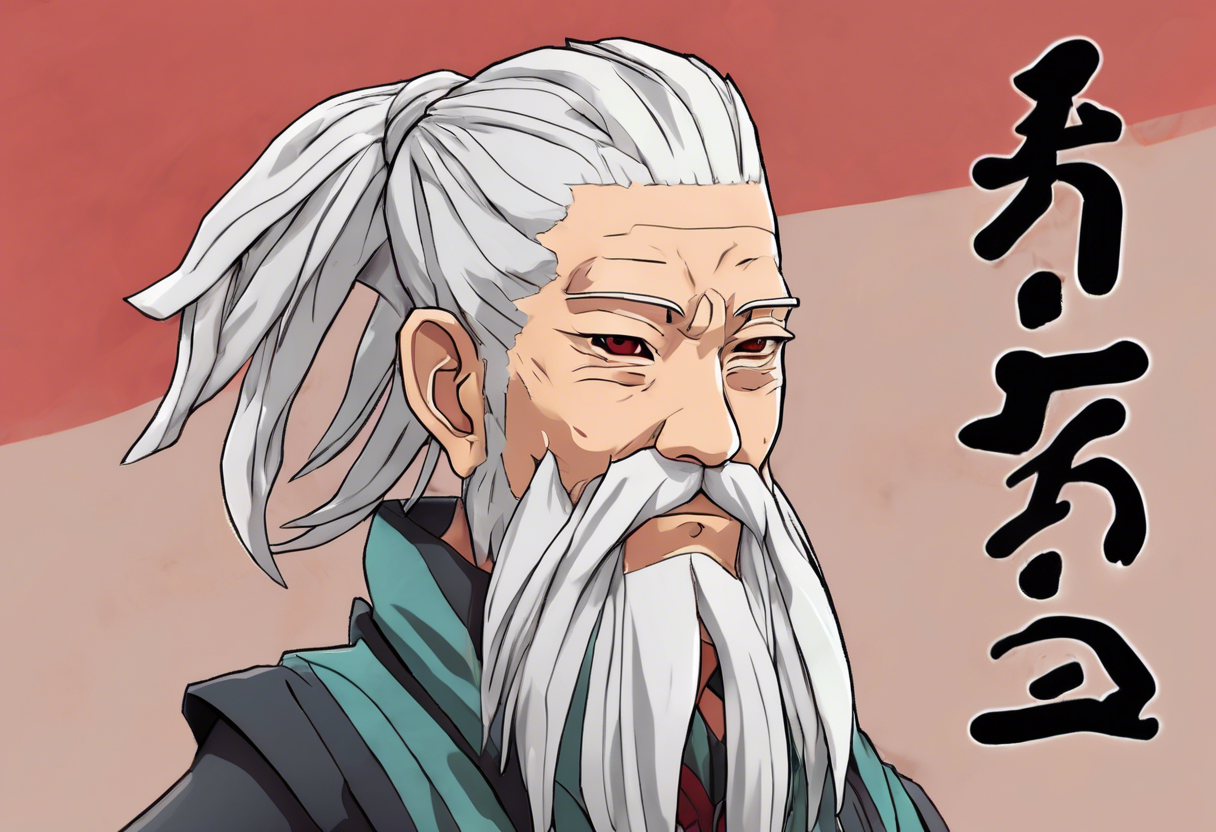Contents
Onoki: The Complex and Influential Tsuchikage of Naruto
Introduction
Onoki, also known as the Third Tsuchikage, is a pivotal character in the Naruto series created by Masashi Kishimoto. He hails from the Hidden Stone Village (Iwagakure) and is renowned for his exceptional ninja skills, particularly in the Earth Release and Dust Release techniques. Onoki’s character is deeply intertwined with the narrative of Naruto, contributing significantly to the story’s progression and themes.
Onoki’s backstory is marked by his encounters with Madara Uchiha during his childhood, which had a profound impact on his worldview and leadership style. He became one of the most powerful and respected Kages in the ninja world, known for his strong sense of duty and loyalty to his village [1][2].
Role in the Story
Onoki’s role in the Naruto series is multifaceted and crucial. Initially, he was one of the leaders who did not trust the other Great Nations, often keeping Iwagakure isolated and on the verge of war. This mistrust led him to hire the Akatsuki, unaware that they were Madara’s puppets [2].
During the Fourth Great Shinobi World War, Onoki played a key role as a leader of the Shinobi Alliance. He allied with other Kages, putting aside his differences, especially with the Raikage, and inspired by Naruto, he became one of the alliance’s most important players. Onoki defended the alliance from Madara’s attacks, using his advanced ninjutsu techniques to stave off meteor showers and other threats [1][2].
After the war, Onoki’s life took a tragic turn. He lost his grandson, Kozuchi, to rogue ninjas, which motivated him to develop synthetic warriors to protect his village without risking human lives. However, his creations, known as Fabrications, turned against him and Iwagakure, leading to a coup led by a clone named Kū. This conflict ultimately led to Onoki’s heroic but tragic death, as he fought to protect his village and the future generations [2].
Character Analysis
Onoki’s personality is complex and often contradictory. He is characterized by his arrogance, stubbornness, and boastfulness, which sometimes led to conflicts with other characters, particularly those younger than him. Despite his advanced age, Onoki refused to step down as Tsuchikage, arguing that he was still powerful enough to control the village. This stubbornness was evident in his advice to Tsunade to resign as Hokage, highlighting his hypocritical nature [1].
However, Onoki also displayed a strong sense of duty and loyalty to his village. He was a determined and charismatic commander who inspired his fellow soldiers to face formidable enemies without fear. His encounter with Madara in his childhood significantly influenced his actions and worldview, but he also showed a capacity for growth and change, particularly after seeing Gaara’s leadership and wisdom despite his youth [1][2].
Onoki’s personality can be analyzed through various psychological frameworks. Some classify him as an ESTJ (Extroverted Sensing Thinking Judging) type, characterized by practicality, logic, and a focus on the present moment. This type is known for being authoritative and results-driven, but also rigid and inflexible at times [3].
Alternatively, Onoki can be seen as an Enneagram Type Eight (the Challenger), marked by his strong leadership, desire for control, and tendency to hide vulnerability. This personality type explains his impulsive and reactive behavior under pressure [3].
Themes and Symbolism
Onoki embodies several key themes in the Naruto series. One of the most significant is the theme of protection and sacrifice. Onoki’s actions, particularly his creation of synthetic warriors, were driven by his desire to protect his village and prevent further loss of life. However, this also led to a reflection on the morality of treating beings as mere objects, a point highlighted by Boruto’s critique of Onoki’s methods [2].
Another theme is the importance of alliances and cooperation. Onoki’s initial mistrust of other nations and his later alliance with them during the Fourth Great Shinobi World War illustrate the necessity of unity in the face of common threats. His character arc also underscores the value of empathy and understanding, as seen in his eventual recognition of the strength in numbers and the importance of progress and evolution [1][2].
Cultural Impact
Onoki has had a significant cultural impact on the Naruto fanbase. His complex character and nuanced storyline have made him a favorite among fans, who appreciate his depth and the moral dilemmas he faces. In adaptations and spin-offs, such as the Boruto series, Onoki’s legacy continues to influence the narrative, particularly in the themes of leadership, protection, and the ethical use of advanced technology [2].
Onoki’s character has also inspired discussions on leadership, duty, and the consequences of one’s actions. His story serves as a cautionary tale about the dangers of unchecked ambition and the importance of considering the long-term effects of one’s decisions.
Critical Reception
Critics and audiences have had mixed but generally positive reactions to Onoki’s character. His complexity and the depth of his storyline have been praised, as have his heroic actions during the Fourth Great Shinobi World War. However, his later descent into darkness and his creation of the Fabrications have been criticized for their moral ambiguity and the tragic consequences that followed [2].
Onoki’s character development has been a subject of interest among fans and critics alike. His transformation from a stubborn and arrogant leader to a more reflective and empathetic character has been seen as one of the most compelling aspects of his story.
Legacy
Onoki’s legacy in the Naruto series is enduring and profound. He remains one of the most respected and admired characters, known for his bravery, leadership, and ultimate sacrifice. His story serves as a reminder of the importance of unity, empathy, and responsible leadership.
Onoki’s influence can also be seen in other works and character archetypes. His complex personality and the moral dilemmas he faced have set a precedent for nuanced character development in anime and manga. His legacy continues to inspire new generations of fans and creators, ensuring that his impact on the world of Naruto remains significant.

